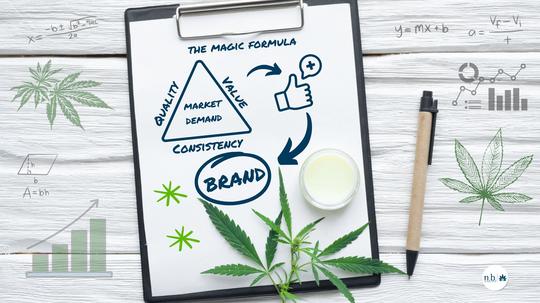
Building and protecting a brand for any startup is a keep-you-awake-at-night issue, regardless of your company’s industry. Why does it hold so much weight? A brand identifies a company as the source for goods and services and it holds the goodwill created by a company with its customers.
The value of your brand, and hence your company, depends on the quality, value, and consistency of your goods and services. This is the magic formula for your customers. Consistently delivering goods and services with a quality and value that meets a demand in the marketplace means the company will generate goodwill amongst its consumers and build value in the brand and the company. If a company fails to deliver goods and services with consistent quality and value, then the value of the company’s brand and the company itself will suffer – destroying that goodwill.

In the agricultural industry, many products have mature supply chains that allow the producers to deliver goods with a high degree of consistency in quality and value. In turn, consumers get what they expect no matter where in the country they make a purchase. However, even with some well-established agricultural products, the end result cannot be fully controlled and may not always be consistent (think wine in the face of droughts or other weather impacts). That’s where producers must take additional steps to manage the brand by setting customer expectations.
For one growing agricultural market, consistency may be even more difficult to obtain – at least in the near term.
In the cannabis industry, which includes marijuana and hemp products*, companies trying to build their brand face not only the usual challenges associated with agricultural products, but additional hurdles posed by the current state-by-state and federal regulatory environment and a wide range of consumer experiences with cannabis products. For example, multistate operators (MSO) at the producer, wholesaler and retailer levels generally cannot transport many cannabis products across state lines because of current regulations. This inevitably means that consumers in different states will get different products. In addition, the large number and varying percentages and combinations of active compounds (THC, CBD, etc.) in cannabis products means that there is a corresponding wide range of consumer experiences with the products.
How can cannabis companies build value in their brands, companies, and industry to grow beyond the status of a niche market?
One way for cannabis businesses to face the challenges of building a brand and an industry is through the use of data. Information technology can be used at each level – from the grower to the consumer – enabling the industry to deliver consistent products and consumer experience that will grow their brands and the industry.
Traceability
The enormous diversity of cannabis products and the regulatory environment makes it that much more important to identify and track products from seed to sale, and technology offers traceability. For example, blockchain and other tracking technologies may be applied to track cannabis from the seed to the consumer, as well as seed to seed. These tracking technologies can also provide an auditable chain of custody through the supply chain.

Product characterization
The tracking of cannabis products can then also be linked with product characterization; chemical testing characterizes the various amounts of active compounds in each product. By linking the chemical testing data to the product tracking data, each party in the supply chain knows the source and characteristics of the product being delivered to the consumer. A growing number of cannabis testing labs in many states will be positioned to provide product characterization data.
User experience
The next link in the data chain is the consumer. As we’ve seen in numerous industries, technology can greatly benefit the end user. When a consumer looks to purchase cannabis products, the retailer can work with the consumer using the linked data to recommend and provide product that suits the interests of the consumer. They can also get feedback from the consumer on their user experience with the various products. The retailer can use their sales data and customer feedback to determine which products to order from producers in order to meet their consumers’ preferences.
Consumers themselves can use product characterization data to determine which product characteristics they prefer. For example, companies, such as Tetragram Inc., provide consumers with a mobile application that may be used to track a consumers’ experience with cannabis products.
The generation and linking of these three types of data (traceability, product characterization, and user experience) provides a feedback loop on the product characteristics desired by consumers, as well as the seed strains and growing and processing procedures that provide those specific characteristics. This data-driven approach will enable the industry, or at least the companies that adopt this approach, to build their brands and their industry by delivering to consumers the consistency and predictability that consumers have come to expect from the world’s most valuable brands and companies.
Protecting intellectual property is critical in all industries. When it comes to corporate and business law matters, Nemphos Braue has experience helping companies in areas ranging from technology, health care and cannabis to consumer goods, manufacturing, construction, automotive and more. Contact Nemphos Braue.
George Nemphos and Tim Braue started Nemphos Braue LLC in 2016, combining big firm expertise with the flexibility and creativity of a boutique practice. From venture capital and private equity to intellectual property, mergers and acquisitions and general corporate counsel, Nemphos Braue is a different kind of law firm.
U.S. Registered Patent Attorney Michael Antone has experience in intellectual property, corporate and business law, private equity and as a professional engineer. Bill Huber worked in the health care industry for 15 years, was in-house counsel for a large cannabis organization, and cofounded a medical cannabis dispensary.
* While state regulatory definitions may vary somewhat, cannabis plants with greater than 0.3% THC are generally considered marijuana and less than 0.3% THC are generally considered industrial hemp.

